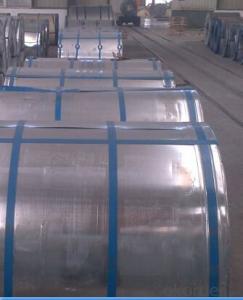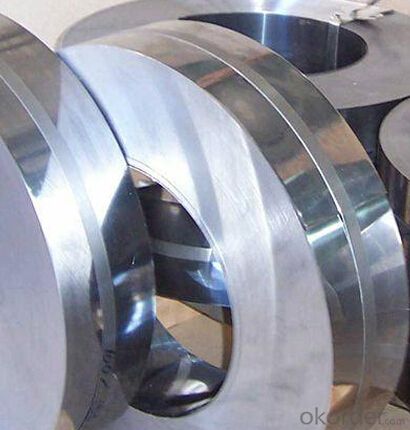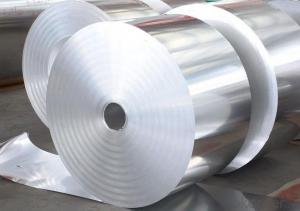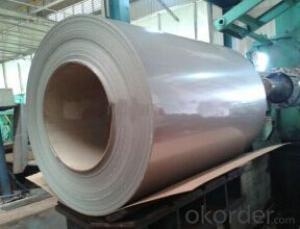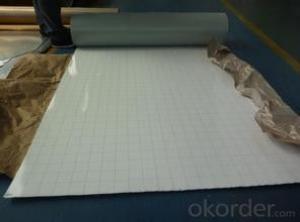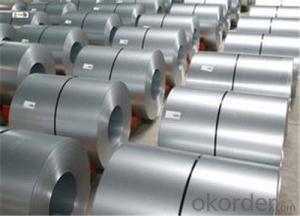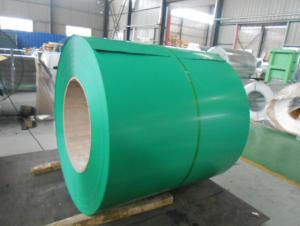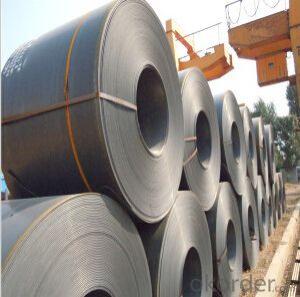CRC Cold Rolled Steel Coil for Construction
- Loading Port:
- Tianjin
- Payment Terms:
- TT OR LC
- Min Order Qty:
- 25 m.t.
- Supply Capability:
- 50000 m.t./month
OKorder Service Pledge
OKorder Financial Service
You Might Also Like
CRC cold rolled steel coil description:
Standard:AISI,DIN,GB,JIS
Grade:spcc/dc01/SAE1008/ST12
Thickness:0.14-3.0mm
Type:Steel Coil
Technique:Cold Rolled
Application:automobile, appliance
Width:900-1250mm
Specifications
Cold rolled coil/ Cold rolled steel strips
Thickenss: 0.14-3.0mm
Width: 900-1250mm
Standard: GBT/JIS/DIN/ASTM
CRC cold rolled steel coil
1.Standard | JIS, DIN, ASTM |
2.Grade | SPCC DC01 ST12 SAE1008 For more grades,please contact us. |
3.Thickness | 0.4mm-2mm |
4.Width | 1,000mm, 1,200mm, 1,250mm |
5.Place of origin | China |
6.Brand | HUAYE |
7.Model | DC01 |
8.Type | Steel coil and Sheet |
9.Technique | Cold rolled |
10.coil weight | 3tonn-15ton |
11.Application | Constructions, white appliance manufacturing, etc |
FAQ:
Acceptable payment term and way?
T/T,L/C, T/T + L/C, D/P
Acceptable price term
FOB CNF CIF DDU CPT
Do you accept OA payment terms?
Yes, sure, but it normally depending on the order value
Do you have QC team?
Yeah, sure, our QC team is very important, they will keep the qualitycontrol for our products.
What is the validity of your quotation?
Normally 7 days.
What is your advantage?
24 hour quick response /Customer oriented/ Credit foremost/ Top quality Excellent
What is your acceptable payment term?
TT,LC,OA etc
- Q: I know that they have steel shot in smaller sized pellets....say, number 4 shot. I guess it's for waterfowl, etc.Do they make steel buckshot? If not, why not? Would the pellets be too heavy? Wouldn't they have excellent penetration ability?
- I know of no one who makes steel buckshot. Probably for several reasons. Steel is much lighter than lead. Penetration depends on energy, which is the weight of the pellet vs. the velocity of the pellet, equated into ft.lbs. Steel pellets have to travel much faster to achieve the same energy as a lead pellet. Steel, being lighter, would lose energy much faster downrange. The weight difference would be like teeing up a golf ball, and striking it with a club, and teeing up a ping pong ball and striking it with a club. The distance in flight would be obvious. Steel also, is much harder than lead, and would be hard on the barrel, and choke. It also would not deform, which would cause ricochets. Steel shot was a handicap for waterfowler's when the USFWS made non toxic shot mandatory. Waterfowl are bottom feeders, and they were eating the spent lead pellets, and dying from lead poisoning. Steel shot cut the effective range of a shotgun from 45 yards to around 35, and resulted in many cripples and lost birds. Environmetal, makes a T size shot which is .20 caliber, and is called Hevi-shot. Lead is heavier than steel, and Hevi-shot is heavier than lead. At the same velocity, you have 12 to 15% more energy than lead. and probably 20% better than steel....Hope this helps
- Q: How are steel coils used in the manufacturing of automotive wheels?
- Steel coils are used in the manufacturing of automotive wheels as a primary material for the wheel rims. The steel coils are shaped, cut, and welded to create the desired size and design of the wheel rim. They provide high strength and durability, ensuring the wheels can withstand the weight of the vehicle and the impact of road conditions.
- Q: Can steel coils be welded?
- Yes, steel coils can be welded. Welding is a common method used to join steel coils together or to other steel components, allowing for the formation of strong and durable connections in various applications.
- Q: What are the different types of steel coil coatings for heat resistance?
- There are several different types of steel coil coatings that provide heat resistance, including silicone-modified polyester (SMP), polyvinylidene fluoride (PVDF), and high-temperature silicone.
- Q: What are the different methods of oiling steel coils?
- There are several different methods of oiling steel coils, each with its own unique advantages and applications. Some of the common methods include: 1. Immersion or bath oiling: This method involves submerging the steel coils into a bath of oil. The coils are typically passed through a series of rollers to ensure even coating and complete coverage. Bath oiling is a cost-effective and efficient method for large-scale production, as it can oil multiple coils simultaneously. This method is commonly used for hot-rolled coils. 2. Roll-on oiling: As the name suggests, roll-on oiling involves applying oil to the surface of steel coils using a set of rotating rollers. This method ensures uniform oil distribution and is suitable for both cold-rolled and hot-rolled coils. Roll-on oiling is often preferred when precise control over the amount of oil applied is required. 3. Spray oiling: In spray oiling, a fine mist or spray of oil is applied to the coils using specialized nozzles or sprayers. This method allows for targeted application, making it suitable for specific areas or sections of the steel coils. Spray oiling is commonly used for precision or specialty coils where controlling the amount of oil is critical. 4. Electrostatic oiling: Electrostatic oiling involves applying a charged mist of oil particles to the steel coils. The coils are given an opposite charge, causing the oil particles to be attracted and adhere to the surface. This method ensures an even and controlled distribution of oil, minimizing waste and reducing environmental impact. Electrostatic oiling is often used for high-quality or high-precision applications. 5. Brush or roller oiling: This method involves manually applying oil to the coils using brushes or rollers. It is typically used for smaller-scale operations or when precision is required in specific areas. Brush or roller oiling allows for close control over the amount of oil applied. The choice of oiling method depends on various factors such as the type of steel, desired level of oil coverage, production volume, and cost considerations. Each method has its own advantages and limitations, and manufacturers often select the most suitable method based on their specific requirements and objectives.
- Q: What are the different thickness tolerances for steel coils?
- The specific requirements and industry standards can cause the thickness tolerances for steel coils to vary. There are several common thickness tolerances for steel coils: - The standard tolerance ranges from ±0.005 inches to ±0.010 inches. This means that the actual thickness of the steel coil can deviate within this range from the specified thickness. - Stricter tolerances, known as tighter tolerances, may be necessary in certain cases, particularly for critical applications or industries. These tighter tolerances can range from ±0.002 inches to ±0.005 inches, ensuring more precise thickness control for the steel coils. - Custom thickness tolerances can be defined to meet the specific needs of a project or customer. These custom tolerances can be looser or tighter than the standard or tighter tolerances, depending on the application and desired precision level. It is important to consider that different industries and applications may have their own unique tolerance requirements. For example, industries such as automotive or aerospace may demand tighter tolerances due to the critical nature of their applications, while other industries may accept looser tolerances. Additionally, the specific type of steel being used can also affect the acceptable thickness tolerances. Therefore, consulting the relevant industry standards and specifications is crucial in determining the appropriate thickness tolerances for steel coils in a particular application.
- Q: How are steel coils coated to prevent corrosion?
- Steel coils are often coated to prevent corrosion through a process called galvanization. This involves applying a layer of zinc to the surface of the steel coils, which acts as a protective barrier against moisture and other environmental elements. The zinc coating effectively prevents rust and corrosion from forming on the steel surface, extending the lifespan of the coils.
- Q: What are the common coil edge options?
- The common coil edge options include open coil edge, continuous coil edge, and hand-tied coil edge.
- Q: How are steel coils used in the manufacturing of heat shields?
- Steel coils are used in the manufacturing of heat shields to provide a durable and sturdy base material that can withstand high temperatures. The coils are formed into a specific shape and then coated with heat-resistant materials to create a protective barrier against heat and flames.
- Q: I've played guitar for years, now I want a steel guitar. As a beginner, to learn and experiment with, which one would be better for me?
- Pedal steel is very difficult. You need to co-ordinate both hands, both feet and both knees to play it effectively. Lap steel is a lot easier. I suppose it depends how much of a challenge you want. A good lap steel guitar is usually cheaper than a good pedal steel too, so that's another consideration to take into account.
Send your message to us
CRC Cold Rolled Steel Coil for Construction
- Loading Port:
- Tianjin
- Payment Terms:
- TT OR LC
- Min Order Qty:
- 25 m.t.
- Supply Capability:
- 50000 m.t./month
OKorder Service Pledge
OKorder Financial Service
Similar products
Hot products
Hot Searches
Related keywords
